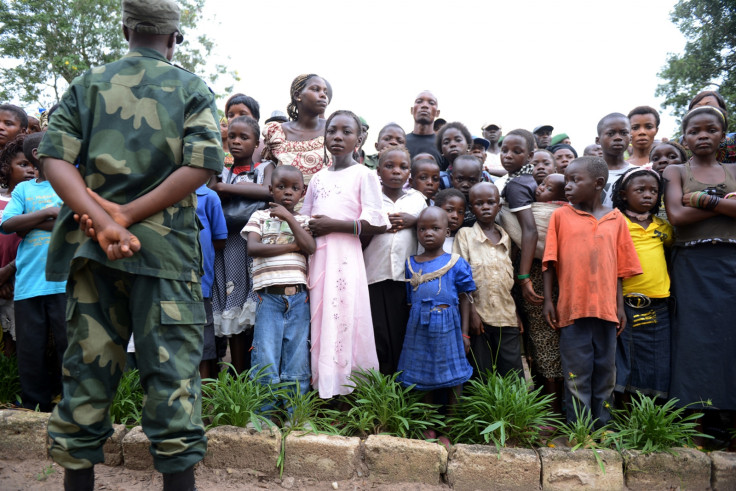Victims 'summarily executed by the army' claim witnesses in DRC's Kasai provinces
IBTimes UK hears of massacres carried out in Kananga, Kasai-Central.
"Any boy the soldiers would find was killed. They didn't even take all the bodies away and dogs started eating the human flesh. Nganza was inhabitable because of the smell." This is the testimony of a local resident in the Democratic Republic of Congo (DRC)'s restive Kasai region.
Since August, Kasai has been rocked by violence involving the Congolese army (FARDC), local tribes and local militia Kamuina Nsapu, long-time opponents of President Joseph Kabila.
A total of 40 mass graves have been found in the area, which is a stronghold of DRC's main opposition party. The UN alleged the sites were dug by FARDC soldiers following fights with the Kamuina Nsapu earlier this year.
The latest massacres reportedly took place early on Monday (8 May), in several neighbourhoods of Kananga II, capital of Kasai-Central.
"What is happening in Kananga is horrible," Paul Nsapu, President of the Congolese League of Electors and member of the International Federation of Human Rights Leagues in DRC (FIDH), exclusively told IBTimes UK. "From 3am, army soldiers armed to the teeth surrounded the area. They went in house after house, they asked for ransom and executed young people at point blank."
These reports were corroborated by a local journalist from Kananga, who said: "The soldiers cordoned off the Bandayi area in Kananga II early in the morning, where they are killing young people house by house. They have already killed a lot."
Kabila previously described these areas as a military zone. Early estimates of the violence was that 25 had died, according to the FIDH. "These victims were summarily executed by the army," Nsapu said.
The FIDH says the attacks are exacerbating existing ethnic tensions in Tshikapa, Kamonia, Sumbula, Kamako and Luebo territories. "There is an ongoing campaign of demonisation by the Pende and Tshokwe tribes, encouraged by Kinshasa, against the Luba," Nsapu explained. "The inter-tribal conflict has resulted in human devastation and loss."

Those who fled the raid described how they were overwhelmed by desolation, and described the repeated attacks on the Lulua people from Kasai-Central and those speaking Luba as a "genocide". A local Lulua resident, who asked to remain anonymous as his family was targeted, spoke to IBTimes UK about Monday's attack.
"After targeted attacks, people spent days hiding in their homes. The day before yesterday and yesterday, they killed young men – not young women – and people were fleeing Kamboté and Bandayi."
In reference to raids carried out in Nganza at the end of April, the source said: "In Nganza it is worse because the regime considers it to the the fief of the Kamuina Nsapu. Doors were broken down, one by one. Any boy the soldiers would find was killed. They didn't even take all the bodies away and dogs started eating the human flesh. Nganza was inhabitable because of the smells."
The man, who is now living in hiding outside the province, described how both his brothers were killed. One was shot, while the other was decapitated.
Human rights organisations confirmed hundreds of people have fled the area, adding to the existing 1 million people who have been displaced from their homes over the past eight months.
The Congolese government has previously denied the army's involvement in the killings of civilians, but explained they are fighting Kamuina Nsapu militiamen, who the government classifies as a terrorist organisation as they attack symbols of the state.
© Copyright IBTimes 2025. All rights reserved.





















